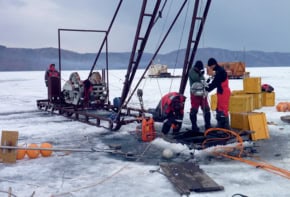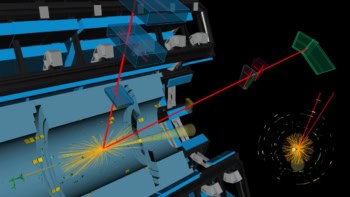Two big science projects - the International Thermonuclear Experimental Reactor (ITER) and the International Space Station - have come under attack from two influential politicians in the US. Last week, the Department of Energy extended the ITER fusion project by another year, against the wishes of James Sensenbrenner, chairman of the science committee of the House of Representatives. Meanwhile, Newt Gingrich, leader of the House, called the space station an "absolute disaster" and criticised NASA for making space "as boring as possible" at a press conference promoting US science policy.
Sensenbrenner has long campaigned against ITER, an international collaboration between fusion labs in Europe, Japan, Russia and the US. He claims that ITER has soaked up valuable funds that could be used for cheaper, more effective fusion programmes, and called last week’s extension “irresponsible.” He argues that the original goal set by the project – a sustainable fusion reactor – is impossible to achieve with the current reactor design and that ITER is a “dead end” project. He was particularly incensed by the extension as the Department of Energy had previously agreed to seek “congressional concurrence” for any future extension to the programme.
Upon hearing that NASA was seeking an additional $600 m to keep the space station on target for habitation next year, Sensenbrenner called the Russian involvement in the programme an “expensive mistake”. He also suggested that Russia could no longer be treated as an equal in the project, and that the station had been turned into “Russian foreign aid” instead of a science programme. Gingrich was even more scathing about NASA itself. The agency had “done a spectacular job of slowing down the rate which we’ve gotten into space, ” he said. If it were not for NASA’s bureaucracy, and the “slow, cumbersome and extraordinarily expensive” nature of American space launch systems, the US could have had a permanent presence on the moon, said Gingrich.



